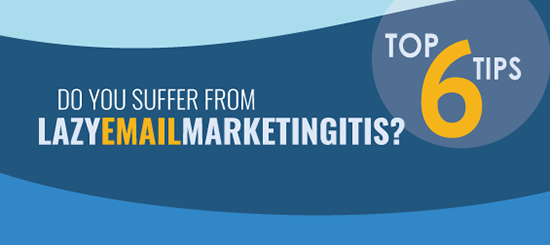Ways to Ensure That You’re Well Equipped
Review Your Opt-In Procedures
New rules state that consent for email marketing must be explicit, specified and informed. This means that it cannot be inferred from silence, pre-ticked boxes or inactivity. Additionally, your data privacy notices/declarations used when collecting their email addresses must be clear on how their data will be used and their right to have their details changed or removed at any time of their choosing.
In order to comply with this, we suggest that you clearly communicate with consumers what their email address will be used for and why and how it will benefit them in a concise, jargon-free declaration or statement.
On top of this, to make sure that you’re completely covered in this department, keep a record of exactly when and how each subscriber was added onto your email marketing database.
Age Verification for Juniors
It will become mandatory for you to request the consent of a parent or guardian in order to lawfully process the data of any child or junior subscriber – in the UK this will be defined as anyone under the age of 13.
So if your organisation targets products or services at children and collects their data, you should begin thinking about emplacing a system to verify individuals’ ages and gathering the consent of a parent or guardian; bearing in mind that your privacy notice must also be written using language that children will easily understand.
Accommodate for Individuals’ “Right to Erasure”
The GDPR’s “Right to erasure” article proclaims that marketers will be required to give individuals the means to exercise their right to access, rectify or delete their data, as well as object to how their data is being used.
Therefore, as is already email best practice, always include a clear unsubscribe link at the bottom of each of your emails with another link for any subscribers to update their existing details. This will also benefit your own marketing and sales efforts as it keeps your database up-to-date and ensures that you’re only communicating with those that are most interested in what you have to say.
For email marketers, the crux of it is that your list growth and subscription process will need to involve more transparency with regards to how their data will be used, more careful recording of subscribers’ consent to this and providing ample opportunities for them to remove or edit the information you hold.
While these changes are likely to involve a rethink of how your data is being gathered and held (increasing workloads!), the EU’s strict stance on this issue does put a stronger obligation for adherence with email best practice methods and for data lists to be grown organically instead of relying on shortcut solutions such as purchasing data.
This in turn is sure to result in an increase in open rates, click rates, email deliverability and ultimately return on investment for what is already one of the most profitable weapons in any marketer’s arsenal.
…but What If Brexit Succeeds?
With the EU referendum right around the corner, Brexit becomes a realistic outcome that organisations may also have to adapt to. While the immediate implication is that this will leave British organisation exempt from stringent EU legislation, these changes are not solely being put forward by the EU and we believe that these are just a response to what is becoming a global trend toward stricter data security and control. Therefore, we recommend following suit as it also avoids any potential last-ditch panic to put these practices in place and as mentioned, your return on email marketing only stands to improve.
For additional advice on how you can begin to actively take steps to accommodate these changes, please feel free to get in touch with your Account Manager.









